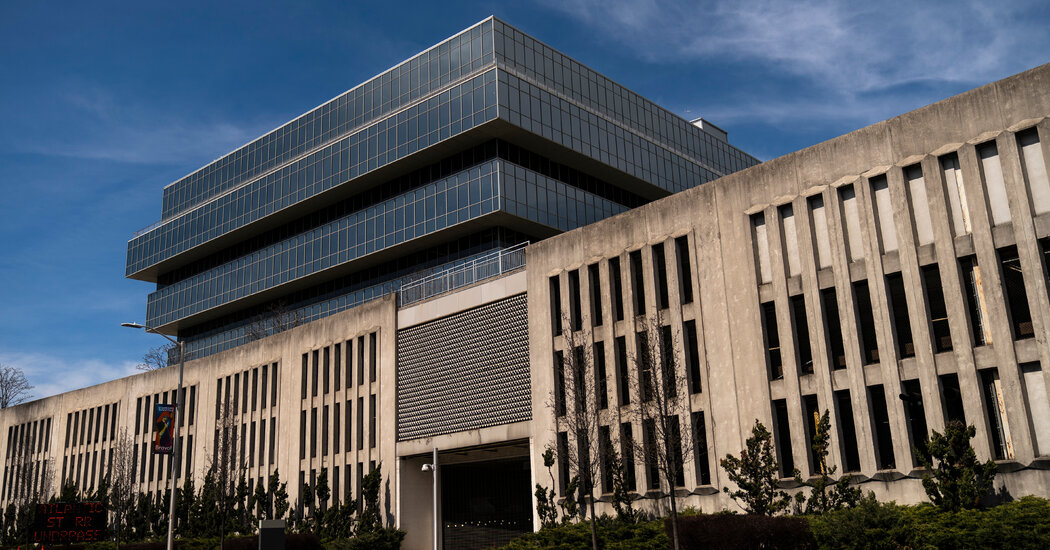Members of the Sackler family, the billionaire owners of Purdue Pharma, will be granted full immunity from all civil legal claims — current and future — over their role in the company’s opioid business, a federal appeals court ruled Tuesday.
The ruling gives the family the sweeping protections it has been asking for for years, in exchange for payment of up to $6 billion of the family’s fortune to deal with the ongoing ravages of the opioid crisis.
It removes a major hurdle for that money, plus the company’s $500 million initial outlay, to be provided to states and communities for addiction treatment and prevention programs, needs that have soared during an epidemic far beyond grown beyond the misuse of Purdue’s signature prescription pain reliever, OxyContin.
Unless there is a successful appeal to the Supreme Court — an unlikely prospect, legal experts said — the new ruling will close the door to Purdue’s hotly contested bankruptcy restructuring, which began nearly four years ago. The bankruptcy is at the heart of a plan designed to resolve thousands of opioid cases against the company nationwide, plus about 400 against individual Sackler family members.
Under the plan, Purdue would be restructured into a new entity called Knoa Pharma, which will produce drugs for reversing and treating addiction and continue to produce other drugs, including OxyContin. It will be controlled by a public administration. Over time, Knoa Pharma is expected to contribute at least many hundreds of millions of dollars more to the plaintiffs.
Some observers of the Purdue case applauded the ruling, calling it a pragmatic read that could now net billions of dollars for states, local governments, tribes and individuals suing Purdue over its early and aggressive role in marketing OxyContin as a non-addictive pain treatment. .
“It is time to put this bankruptcy behind us. Victims have waited too long to recover,” said Ryan Hampton, an advocate for opioid victims who co-chaired Purdue’s creditors’ committee.
He added: “The system is far from perfect, but the real injustice will be if the settlement of these victims is held up any longer.”
But others said the Sacklers got a major pass. “Bankruptcy was not intended as an alternative legal system for powerful corporations and their super-rich owners. But that’s the effect and perception when courts read the law to provide extraordinary protections far beyond what Congress has authorized,” said Melissa B. Jacoby, a law professor at the University of North Carolina at Chapel Hill. .
A bankruptcy filing usually puts a temporary hold on a company’s creditors, including in litigation. The main problem in this case was that while Purdue had filed for bankruptcy, the Sacklers as individuals had not. As a result, plaintiffs fighting the plan argued the Sacklers were barred from taking advantage of their company’s liability protection.
The Sacklers stepped down from Purdue’s board of directors in 2018 and have not been directly involved with the company since.
Judge Eunice C. Lee of the U.S. Court of Appeals for the Second Circuit, who wrote Tuesday’s opinion for a three-judge panel, ruled that bankruptcy law allows business owners who have not filed for personal bankruptcy to receive liability protection under certain conditions. circumstances.
“Bankruptcy is inherently a creature of conflicting interests, compromises and less than perfect outcomes,” she wrote. “Because of these defining features, total satisfaction of all that is owed — whether money or justice — is rare.”
Judge Lee, citing a bankruptcy ruling in a 2019 case not involving Purdue, also stressed that the releases granted to the Sacklers “are not a badge of merit that someone gets in exchange for making a positive contribution to a restructuring.” nor are they ‘a participation trophy’ or a ‘gold star for a job well done’.”
The Sacklers’ liability protection does not extend to criminal charges, should one ever be filed.
Purdue filed for bankruptcy in September 2019, as rising opioid cases against the company turned into a deluge.
Tuesday’s ruling came more than a year after oral arguments before the Second Circuit panel. As the months passed, thousands of litigants expressed growing frustration that the case remained unsolved, with payments promised suspended, even as the opioid epidemic itself, now marked by fentanyl use, continued to grow.
The ruling was a victory for Purdue, which appealed a decision by a federal district judge that overturned a settlement originally approved by a bankruptcy court judge in 2021. But most of the parties who appealed the plan for 2021, it finally dropped their objections, after the Sacklers increased their payout offer by about $1.73 billion.
The only objectors left are several Canadian municipalities, a few individuals and the US Trustee, a Justice Department program that is the watchdog of the bankruptcy system. Ms. Jacoby, the North Carolina law professor, said that because the last objecting states had agreed to the Purdue plan, the US Trustee’s argument for pursuing the case would not be robust.
The US trustee declined to comment on Tuesday’s ruling.
In a statement after the ruling was made, Purdue called the decision “a victory for Purdue’s creditors, including the states, local governments and victims who overwhelmingly support the reorganization plan.”
“Our focus going forward is to deliver billions of dollars in value for victim compensation, opioid crisis response and overdose rescue drugs,” the statement continued. “Our creditors understand that the plan is the best option to help those who need it most, the fairest and fastest way to resolve litigation, and the only way to deliver billions of dollars in value specifically to the fund opioid crisis response efforts.”
The families of two of Purdue’s founding brothers, Dr. Mortimer Sackler and Dr. Raymond Sackler, both deceased, said in a joint statement: “The Sackler families believe the long overdue implementation of this resolution is critical to providing substantial resources to people and communities in need. We are pleased with the Court’s decision to allow the agreement to go ahead and look forward to it entering into force as soon as possible.”

